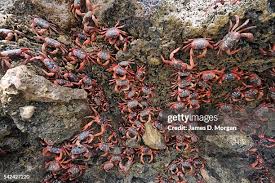The Role of Elephants in Ecosystem Conservation

Introduction
Elephants, often referred to as the ‘gentle giants’ of the animal kingdom, play an integral role in maintaining the health of ecosystems. As one of the largest land mammals, they are not only iconic animals but also keystone species. This means that their presence and behavior significantly influence the structure and diversity of their habitats. However, recent events have highlighted the urgent need for conservation measures as elephant populations face numerous threats, including poaching and habitat loss.
The Current State of Elephants
According to the World Wildlife Fund (WWF), African elephant populations have seen a dramatic decline over the past century, primarily due to illegal poaching for their tusks and ivory. In the early 20th century, there were an estimated 10 million elephants, whereas current estimates suggest there are only around 415,000 African elephants left in the wild. Similarly, Asian elephants are classified as endangered, with only 40,000 to 50,000 individuals remaining in their natural habitats.
Conservation organizations, wildlife authorities, and governments worldwide are stepping up efforts to protect these majestic creatures. Notable initiatives include the African Elephant Conservation Fund and various anti-poaching campaigns that aim to reduce the illegal ivory trade. Furthermore, community-based conservation approaches are gaining popularity, where local populations are engaged and empowered to protect their wildlife.
The Ecological Impact of Elephants
Elephants act as ecosystem engineers by modifying their environment. Through their foraging habits, they create open spaces that allow grasses and other plants to flourish, supporting a variety of other species. Their movement through forests and savannahs helps disperse seeds, which promotes biodiversity. As such, the decline of elephant populations has a cascading effect, impacting other wildlife that depend on diverse habitats.
Conclusion
The situation for elephants remains critical, and the future of these incredible animals is uncertain without significant conservation efforts. As awareness grows, it is essential for individuals, organizations, and governments to collaborate in protecting elephants and their habitats. The long-term survival of elephants is not only a question of wildlife conservation but also one of ecological balance. With continued support for conservation initiatives, there remains hope for the future of elephants, ensuring they can thrive for generations to come.









